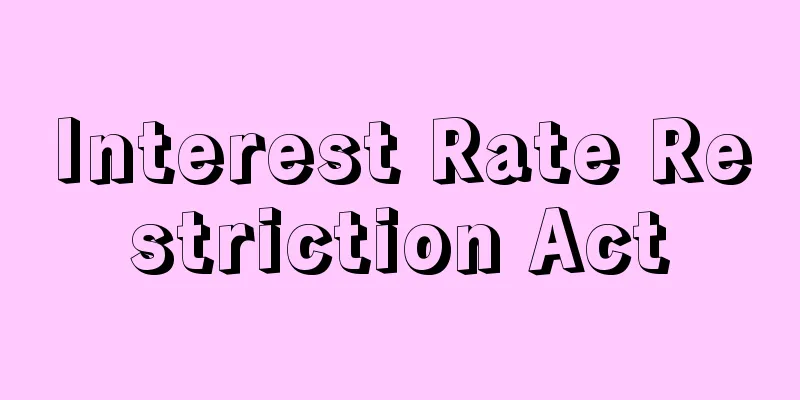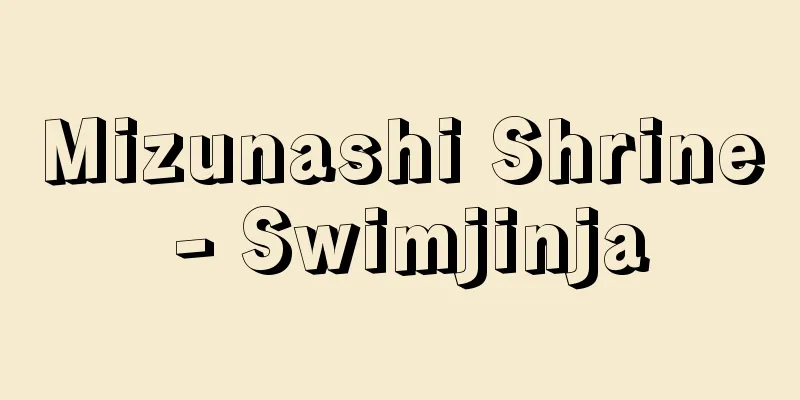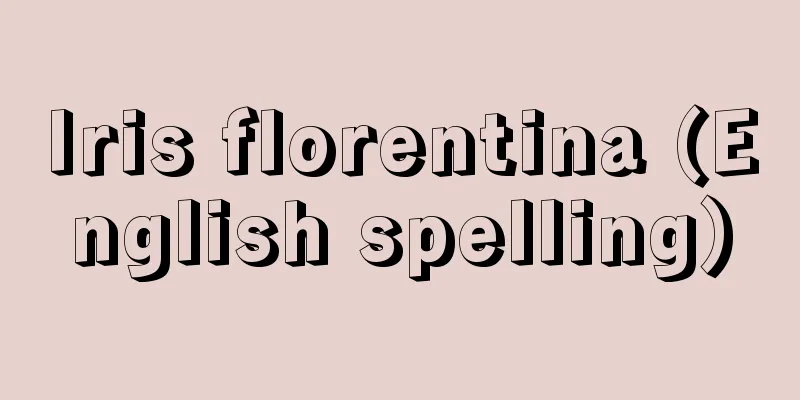Interest Rate Restriction Act

|
A law aimed at cracking down on usury and protecting debtors. It was enacted in 1954 (Showa 29). Law No. 100 of Showa 29. Regulations are set out separately for normal loan contracts and commercial loan contracts, which are loans made by creditors as a business (with the intention of continuing repeatedly). Regarding interest on loans, there are restrictions on interest rates that exceed a certain rate (20% per year if the principal is less than 100,000 yen, 1.8% per year if the principal is between 100,000 yen and 1 million yen, and 1.5% per year if the principal is 1 million yen or more), and any interest that exceeds this rate is considered invalid under private law (law that regulates relationships between individuals). In addition, to prevent evasion of these restrictions, there are regulations on the deduction of interest, special provisions on deemed interest, restrictions on expected compensation amounts, and restrictions on penalties. In the past, the law contained a clause stipulating that if a debtor voluntarily paid excess interest, he or she could not demand its return. This led to a contradiction in that the debtor could not demand the return of excess interest, which should have been invalid under private law. In response to this, the courts, through legal interpretation based on precedents, first allowed the application of the excess portion to the principal, and then came to allow the request for the return of the excess portion that remained even after the principal was applied, and the clause essentially became a dead letter. Moneylenders usually lent money at the so-called gray zone interest rate (the difference between the penalty interest rate that violates the Investment Law and the limit interest rate that violates the Interest Rate Restriction Law and is illegal under private law). Therefore, based on the above-mentioned precedents, the debtor should have been required to return the gray zone interest rate. However, the Law on the Regulation of Moneylending Business (Law No. 32 of 1983, abbreviated as the Moneylending Business Regulation Law, but renamed the Moneylending Business Law when amended in 2006) stipulated, in return for strengthening legal regulations on moneylenders, that payments of interest on money lending contracts made by moneylenders as a business that exceed the interest rate restriction law (gray zone interest rate) may be deemed to be valid repayment of interest debt (deemed repayment). However, the courts, through legal interpretation based on precedents, have now narrowed the scope of application of this provision of the Moneylending Business Law. As a result of these repeated efforts by the courts, the provision in the Interest Restriction Act that prohibited claims for refund of excess interest was deleted in 2006 (Law No. 115 of 2006). In the same year, the amendment to the Investment Law reduced the penalty interest rate and abolished the grey zone interest rate. [Norihiko Fukuhara and Norihiro Takeda] "Theory of Interest Restrictions" by Hidemasa Ono (2010, Keiso Shobo)" ▽ "Atsushi Omura, "Comprehensive Law Series: Consumer Law" 4th Edition (2011, Yuhikaku)" ▽ "Lectures on Consumer Law" 4th Edition (edited by the Japan Federation of Bar Associations) (2013, Nippon Hyoronsha)" [Reference] |Source: Shogakukan Encyclopedia Nipponica About Encyclopedia Nipponica Information | Legend |
|
高利を取り締まり、債務者を保護することを目的とする法律。1954年(昭和29)制定。昭和29年法律第100号。通常の金銭消費貸借契約と、債権者が業として行う(反復継続する意思をもってする)消費貸借である営業的金銭消費貸借契約とに分かれて規制が設けられている。 金銭消費貸借上の利息について、一定率(元本が10万円未満の場合は年2割、10万円以上100万円未満の場合は年1割8分、100万円以上の場合は年1割5分)を超える高利が制限され、その超過部分は私法(個人と個人の間を規律する法)上無効とされる。また、その制限が潜脱(ひそかに脱法)されないように、利息の天引の規制、みなし利息の特則、賠償額の予定の制限ならびに違約金の制限が規定されている。 かつて、同法には、債務者が制限超過利息を任意に支払ったときはその返還を請求できない旨を定める条項が存在していた。私法上無効であるはずの超過利息の返還を、債務者が要求することができないという矛盾に陥っていたのである。これに対して、裁判所は判例による法解釈を通して、まずは超過部分の元本充当を認め、そして、元本充当後も残る超過部分の返還請求が認められるに至り、同条項は実質的に死文化した。 貸金業者はいわゆるグレーゾーン金利(出資法に違反する刑罰金利と、利息制限法に違反して私法上違法となる制限金利との差)でもって金銭を貸し付けているのが通常であった。よって、前記判例の動向により、債務者はグレーゾーン金利の返還を求められるはずであった。しかし、1983年に制定された「貸金業の規制等に関する法律」(昭和58年法律第32号。「貸金業規制法」と略称されたが、2006年改正時「貸金業法」に改称)は、貸金業者への法規制を強めることの見返りに、貸金業者が業として行う金銭消費貸借上の利息の契約に基づく支払いにつき、利息制限法超過部分(グレーゾーン金利)の支払いを有効な利息の債務の弁済とみなす場合(みなし弁済)があることを規定してしまった。ところが、裁判所は判例による法解釈を通して、今度はこの貸金業法の条項の適用範囲を狭めるようになった。この裁判所による再三の努力が結実し、2006年(平成18)には、超過利息の返還請求ができないとする利息制限法の条項が削除されるに至った(平成18年法律第115号)。また、同年の出資法改正により刑罰金利が引き下げられ、グレーゾーン金利は撤廃された。 [福原紀彦・武田典浩] 『小野秀誠著『利息制限の理論』(2010・勁草書房)』▽『大村敦志著『法律学大系 消費者法』第4版(2011・有斐閣)』▽『日本弁護士連合会編『消費者法講義』第4版(2013・日本評論社)』 [参照項目] |出典 小学館 日本大百科全書(ニッポニカ)日本大百科全書(ニッポニカ)について 情報 | 凡例 |
>>: Li people (Li tribe) - Li tribe (English spelling) Lí zú
Recommend
Lantana (English spelling) Lantana camara; lantana
A small shrub of the Verbenaceae family, native to...
Photocomposing machine; phototypesetting machine
A device used for phototypesetting. Light passes t...
Ambam - Ambam
...It is a yellow hygroscopic crystal that is use...
Horikawa Nami no Tsuzumi
Joruri Gidayubushi (play of the chanted chant). S...
Argos (country name) - Argos
…The ruins of the royal palaces of Mycenae and Ti...
Zunft
…Generally, it refers to trade associations of me...
Toranosuke Shimada
A swordsman from the end of the Edo period. His n...
Sodium aluminate
Chemical formula: NaAlO 2 . It can be obtained by ...
Onakatomi clan
Descendants of the ancient aristocrat Nakatomi wh...
Maréchal, Joseph
Born: July 1, 1878, Charleroi Died December 11, 19...
samhain
…It is held on the night of October 31st. It is s...
Nobat (English spelling) [Arabic]
A ceremonial band employed in the royal courts of ...
Crabgrass - Crabgrass
An annual grass of the Gramineae family. The culm...
Tamba clan
A physician of the Imperial Court since the Heian...
CAP - Company A
Columbia AppleTalk Package. AppleTalk protocol sta...

![Nichinan [city] - Nichinan](/upload/images/67cc6e3c0532d.webp)







